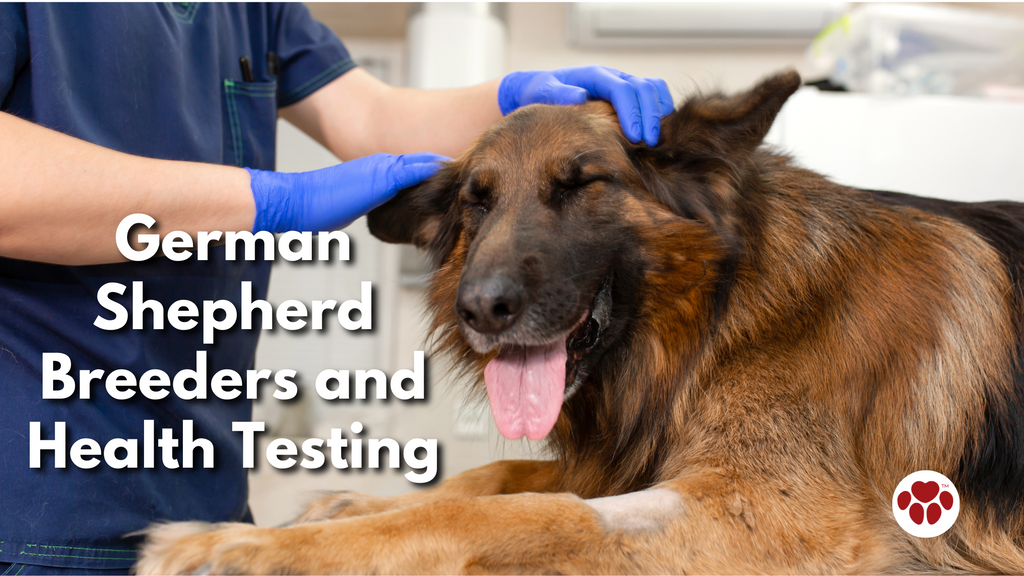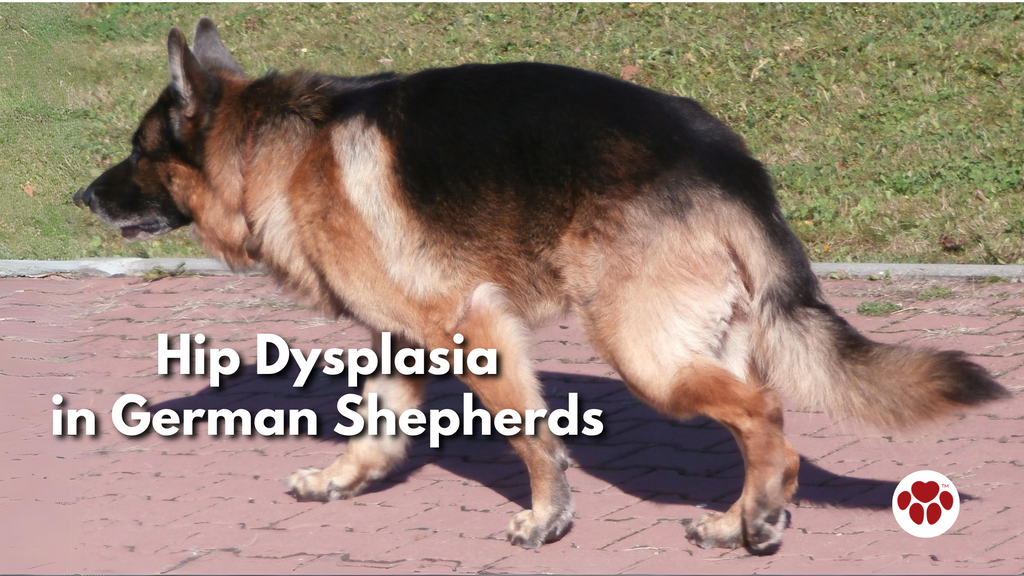
Understanding the Life Expectancy and Health Concerns of German Shepherds
|
|
Time to read 5 min
|
|
Time to read 5 min
Understanding their life expectancy and health concerns is crucial for any owner or prospective pet parent. These majestic and highly intelligent dogs have been beloved companions and working partners for centuries, but their lifespan and potential health issues can vary.
German Shepherds typically have a life expectancy of 9 to 13 years, but factors such as genetics, diet, exercise, and overall care play a significant role. With their strong build and active nature, German Shepherds are prone to certain health conditions, including hip dysplasia, elbow dysplasia, degenerative myelopathy, and certain cancers.
However, being well-informed and proactive can help mitigate these concerns. Regular veterinary check-ups, proper nutrition, and appropriate exercise are keys to ensuring the well-being of your German Shepherd.
In this article, we will explore the following:

German Shepherds typically have a life expectancy of 9 to 12 years according to the study of O’Neill, et al in 2013, but factors such as genetics, diet, exercise, and overall care play a significant role.
While some German Shepherds may live beyond the average range, it's important to be aware of their potential lifespan. By understanding the factors that influence their longevity, you can ensure your German Shepherd lives a healthy and fulfilling life.

Several factors can impact the lifespan of German Shepherds (Adams, Morgan, and Watson, 2018). Genetics, for instance, plays a crucial role in determining their overall health and longevity. Responsible breeders who prioritize genetic health testing can help reduce the risk of inherited conditions.
Additionally, providing a balanced and nutritious diet, regular exercise, and routine veterinary care are essential for extending the lifespan of your German Shepherd.

German Shepherds are prone to certain genetic health issues that can affect their quality of life (Tengvall, et al 2013; Peiravan, et al, 2018; Mortlock, et al, 2015). Some common conditions include hip dysplasia, where the hip joint doesn't develop properly, and elbow dysplasia, which affects the elbow joint (Stock, et al, 2011). Read "Exploring CBD Oil's Benefits for Dogs' Dysplasia Comfort".
These conditions can cause pain, lameness, and difficulty moving. Regular check-ups with your veterinarian and early intervention can help manage these issues and improve your German Shepherd's overall well-being.

Responsible German Shepherd breeders prioritize the health and well-being of their dogs. They conduct various health tests, such as hip and elbow evaluations, to ensure the puppies they produce are less likely to develop hereditary conditions (Marschall and Distl, 2007).
When choosing a breeder, it's important to inquire about the health testing they perform. Working with a reputable breeder can help minimize the risk of genetic health issues in your German Shepherd.

Hip dysplasia is a common health concern in German Shepherds. Hip dysplasia in German Shepherd dogs is highly heritable, “with offspring's risk influenced by the hip joint status of their parents and littermates” according to the study of Hedhammar, et al, in 1979 titled “Canine Hip Dysplasia: Study of Heritability in 401 Litters of German Shepherd Dogs,”. This condition occurs when the hip joint doesn't fit together properly, leading to pain, lameness, and arthritis.
While genetics play a significant role in the development of hip dysplasia, other factors such as rapid growth, obesity, and excessive exercise can also contribute.
Regular exercise that promotes muscle development, maintaining a healthy weight, and joint supplements such as CBD Happy-Furever™ Oil can help manage hip dysplasia and improve your German Shepherd's quality of life.

Degenerative myelopathy (DM) is a progressive neurological disease that affects the spinal cord of German Shepherds. This condition typically surfaces in older dogs and gradually leads to weakness, loss of coordination, and paralysis.
“German Shepherd Dog myelopathy is not a dying-back disease process, but rather a complex disease complex influenced by genetic determinants,” according to the research of Braund, K. & Vandevelde, M., entitled “German Shepherd dog myelopathy--a morphologic and morphometric study,“ 1978.
While there is no cure for DM, early detection and supportive care can help slow down the progression of the disease (Hunter and Ward, 2024). Regular veterinary check-ups and maintaining a healthy lifestyle can help identify and manage degenerative myelopathy in your German Shepherd.

Proper nutrition and exercise play a vital role in the overall health and longevity of German Shepherds. Feeding them a balanced diet that meets their nutritional needs is essential to support their growth, maintain a healthy weight, and prevent obesity-related health issues.
Dietary supplements “significantly enhance the physical fitness of German Shepherd dogs during drug detection training by accelerating heart rate recovery, reducing muscle damage, and improving energy metabolism,” according to the study of Menchetti, et al entitled “Benefits of dietary supplements on the physical fitness of German Shepherd dogs during a drug detection training course,” 2019.
Regular exercise not only keeps them physically fit but also stimulates their mental well-being. Consult with your veterinarian to determine the most appropriate diet and exercise regimen for your German Shepherd based on their age, activity level, and specific health requirements.

As German Shepherds age, they may encounter various age-related health concerns, such as arthritis and anxiety.
CBD oil, such as CBD Happy-Furever™ Oil, derived from hemp plants, has gained popularity as a natural supplement that may provide relief for certain conditions.
Hemp-derived CBD is “safe and has therapeutic potential for relieving arthritic pain,” according to the study of Menchetti, et al, entitled “Benefits of dietary supplements on the physical fitness of German Shepherd dogs during a drug detection training course,” 2019.
While research on the effects of CBD oil in dogs is still ongoing, some pet parents have reported positive results in managing pain and anxiety in their senior German Shepherds.
Before incorporating CBD oil into your dog's routine, it's crucial to consult with your veterinarian to ensure it is safe and appropriate for your German Shepherd's specific needs.

To promote the health and longevity of your German Shepherd, consider implementing the following tips:
By implementing these tips and staying proactive in your German Shepherd's care, you can be the best guardian for your beloved companion, promoting their health and enhancing their overall well-being.
Remember, understanding their life expectancy and health concerns is just the beginning. Your dedication and commitment to their care will ensure that your German Shepherd thrives as a true guardian angel throughout their years by your side.